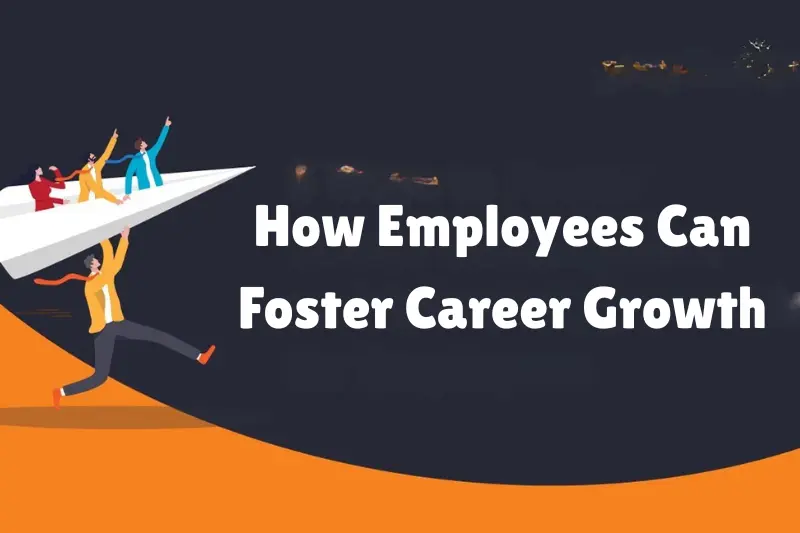Have you ever noticed how some colleagues seem to land promotions, exciting projects, or leadership roles faster than others? If you’re wondering “what is career growth?”, it’s not just about getting a raise or a new title. Career growth is the journey of learning new skills, taking on challenges, and steadily moving toward your long-term professional goals.
Think of it like planting a garden. You don’t expect flowers to bloom overnight—you water the seeds, provide sunlight, and nurture them consistently. In the same way, career growth happens step by step, through continuous effort, learning, and gaining experience. Understanding what is career growth can help you plan your professional path and achieve your aspirations.
Understanding: What is Career Growth

So, what is career growth? In simple terms, it is the ongoing process of improving your skills, taking on new responsibilities, and moving closer to your long-term professional goals. Career growth is personal development in action—it’s about expanding your knowledge, exploring new opportunities, and aligning your work with your passions and ambitions.
Many employees have bigger dreams than staying in the same position for years. These aspirations, along with the steps they take to achieve them, form the essence of their personal career growth. It’s not just about climbing the corporate ladder; it’s about building a fulfilling and meaningful career.
Why Career Growth Matters
Understanding what is career growth also means knowing why it is so important—for both individuals and organizations.
- Boosts Motivation and Productivity
Employees who see a clear path for advancement are more motivated, engaged, and committed. Career growth gives people a reason to perform at their best. - Attracts and Retains Talent
Companies that support career growth attract skilled professionals and retain them longer. People want workplaces where they can grow, learn, and achieve their goals. - Enhances Skills and Knowledge
Career growth encourages continuous learning. Employees gain new expertise that benefits both their personal development and the organization’s success. - Strengthens Company Culture
Organizations that focus on career growth foster a culture of support, mentorship, and collaboration, which boosts morale and engagement.
How Employees Can Foster Career Growth

If you want to advance professionally, here’s how to take charge of your career growth:
- Set Clear Goals: Understand your short-term and long-term objectives to guide your career decisions.
- Seek Learning Opportunities: Attend workshops, pursue certifications, and improve your skills regularly.
- Find a Mentor: Mentors provide guidance, feedback, and support on your career journey.
- Network: Build connections that can open doors to opportunities and provide valuable insights.
- Take Initiative: Volunteer for challenging projects and demonstrate your potential proactively.
By focusing on these strategies, employees can actively shape their career growth and achieve meaningful progress.
You may also like to read this:
7 Types of Learning Methods For Students: A Complete Guide
How To Improve Study Habits: Tips For Smarter Learning
Why Learning Strategies Matter For Smarter Learning
10 Top Learning Tips For Exams To Boost Performance
Online Learning Vs Classroom Learning Explained
How Employers Can Support Career Growth
Organizations play a crucial role in helping employees grow. Here’s how companies can encourage career growth:
- Offer Training Programs: Regular workshops, courses, and skill development initiatives empower employees.
- Provide Clear Advancement Paths: Employees are more motivated when they understand how to progress.
- Recognize Achievements: Celebrating milestones inspires further growth and loyalty.
- Encourage Feedback: Constructive feedback helps employees identify areas for improvement.
- Foster a Growth-Oriented Culture: A supportive environment encourages learning, innovation, and professional development.
Key Benefits of Career Growth
Career growth brings benefits for both employees and organizations:
- For employees: Improved skills, higher confidence, job satisfaction, and career fulfillment.
- For organizations: Enhanced productivity, talent retention, and a stronger, more capable workforce.
Understanding what is career growth is crucial because it creates a win-win situation: employees achieve their professional dreams while organizations thrive with skilled, motivated teams.
Common Challenges in Career Growth
While understanding what is career growth is the first step, achieving it is not always straightforward. Many professionals face challenges that can slow down their progress. Some common obstacles include:
- Lack of Clear Goals: Without a roadmap, it’s easy to feel stuck or unsure about the next steps in your career.
- Limited Skill Development: Stagnating skills can prevent advancement, especially in rapidly evolving industries.
- Poor Networking: Opportunities often come from connections. A weak professional network can limit growth.
- Fear of Change: Taking risks or stepping outside comfort zones is essential for growth, but fear often holds people back.
- Unsupportive Work Environment: Organizations that don’t prioritize career development can hinder employee progression.
Understanding these challenges allows both employees and employers to take proactive measures to overcome them.
Strategies for Long-Term Career Growth
Achieving career growth requires both short-term actions and long-term planning. Here are some strategies to ensure steady progress:
- Continuous Learning: Stay updated with industry trends, technology, and best practices. Online courses, certifications, and seminars are great tools.
- Seek Feedback Regularly: Constructive feedback helps identify strengths and areas for improvement.
- Embrace New Challenges: Taking on difficult projects or unfamiliar roles accelerates skill development and confidence.
- Maintain Work-Life Balance: Career growth isn’t just about hard work—it’s also about maintaining energy, focus, and mental health.
- Reflect and Reassess: Periodically evaluate your career goals and progress. Adjust strategies as needed to stay aligned with your aspirations.
The Role of Leadership in Career Growth
Business leaders and managers play a critical role in shaping the career growth of their teams. Effective leadership practices include:
- Mentoring and Coaching: Regular guidance helps employees navigate career paths successfully.
- Providing Opportunities for Skill Development: Workshops, cross-functional projects, and stretch assignments enhance expertise.
- Recognizing and Rewarding Efforts: Celebrating achievements motivates employees to continue growing.
- Encouraging Autonomy: Allowing employees to make decisions fosters confidence, responsibility, and leadership skills.
Organizations that actively support career growth benefit from higher retention rates, stronger engagement, and a workforce that is more adaptable to change.
Measuring Career Growth
Tracking career growth is crucial to ensure that efforts are effective. Metrics and indicators include:
- Promotions and Role Advancements: Moving to higher positions is a clear sign of growth.
- Skill Acquisition: New certifications, training, and expertise indicate development.
- Performance Improvements: Increased efficiency, quality of work, and responsibility show progress.
- Job Satisfaction: Feeling fulfilled, motivated, and challenged reflects personal growth.
- Networking Expansion: Building meaningful professional connections is an important aspect of growth.
Conclusion
In the simplest terms, career growth is about evolving as a professional. It’s a combination of learning, gaining experience, building relationships, and achieving goals over time. Both employees and organizations stand to gain when career growth is prioritized: employees enjoy fulfilling, rewarding careers, while organizations benefit from motivated, skilled, and loyal teams.
Remember, career growth is not a one-time achievement—it’s a continuous journey. By understanding what is career growth, identifying challenges, taking strategic steps, and fostering a supportive environment, you can create a successful, meaningful, and sustainable professional path.
FAQs
1. What is career growth?
Career growth is the ongoing process of improving your skills, gaining experience, taking on new responsibilities, and progressing toward your long-term professional goals. It’s about personal development and achieving a fulfilling career, not just promotions or raises.
2. Why is career growth important?
Career growth boosts motivation, enhances skills, improves job satisfaction, and helps employees achieve their professional dreams. For organizations, it increases productivity, talent retention, and fosters a positive workplace culture.
3. How can employees foster career growth?
Employees can foster career growth by setting clear goals, seeking learning opportunities, networking, finding a mentor, taking initiative, and embracing new challenges. Regularly reflecting on progress and skills is also important.
4. How can employers support career growth?
Employers can support career growth by offering training programs, providing clear advancement paths, recognizing achievements, encouraging feedback, and creating a growth-oriented company culture.
5. What are the common challenges in career growth?
Common challenges include lack of clear goals, limited skill development, weak networking, fear of change, and an unsupportive work environment. Identifying these obstacles helps employees and organizations take proactive steps to overcome them.





